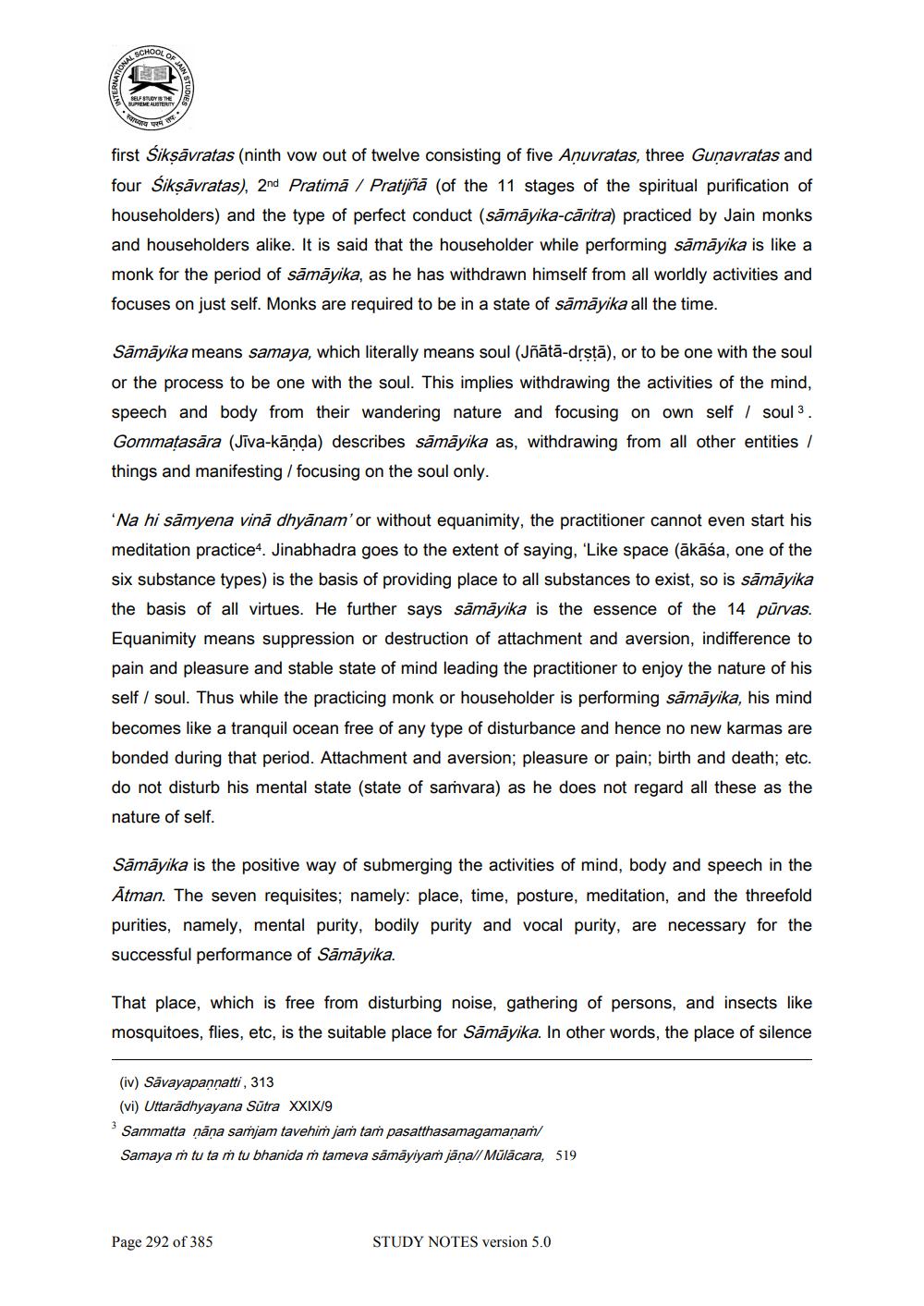________________
INTERNATION
SCHOOL
OF
SELF STUDY IS THE SUPREME AUSTERITY
Pr
परम
STUDIES
first Sikṣāvratas (ninth vow out of twelve consisting of five Anuvratas, three Gunavratas and four Sikṣāvratas), 2nd Pratima / Pratijña (of the 11 stages of the spiritual purification of householders) and the type of perfect conduct (sāmāyika-caritra) practiced by Jain monks and householders alike. It is said that the householder while performing sāmāyika is like a monk for the period of sāmāyika, as he has withdrawn himself from all worldly activities and focuses on just self. Monks are required to be in a state of sāmāyika all the time.
Sāmāyika means samaya, which literally means soul (Jñātā-dṛṣṭā), or to be one with the soul or the process to be one with the soul. This implies withdrawing the activities of the mind, speech and body from their wandering nature and focusing on own self soul. Gommatasära (Jiva-kända) describes sāmāyika as, withdrawing from all other entities / things and manifesting / focusing on the soul only.
'Na hi samyena vina dhyānam' or without equanimity, the practitioner cannot even start his meditation practice4. Jinabhadra goes to the extent of saying, 'Like space (ākāśa, one of the six substance types) is the basis of providing place to all substances to exist, so is sāmāyika the basis of all virtues. He further says sāmāyika is the essence of the 14 pūrvas. Equanimity means suppression or destruction of attachment and aversion, indifference to pain and pleasure and stable state of mind leading the practitioner to enjoy the nature of his self / soul. Thus while the practicing monk or householder is performing sāmāyika, his mind becomes like a tranquil ocean free of any type of disturbance and hence no new karmas are bonded during that period. Attachment and aversion; pleasure or pain; birth and death; etc. do not disturb his mental state (state of samvara) as he does not regard all these as the nature of self.
Sāmāyika is the positive way of submerging the activities of mind, body and speech in the Atman. The seven requisites; namely: place, time, posture, meditation, and the threefold purities, namely, mental purity, bodily purity and vocal purity, are necessary for the successful performance of Samayika.
That place, which is free from disturbing noise, gathering of persons, and insects like mosquitoes, flies, etc, is the suitable place for Sāmāyika. In other words, the place of silence
(iv) Sävayapaṇṇatti, 313
(vi) Uttaradhyayana Sūtra XXIX/9
3 Sammatta ṇāṇa samjam tavehim jam tam pasatthasamagamaṇam/
Samaya m tu ta m tu bhanida m tameva sāmāyiyam jāṇa// Mūlācara, 519
Page 292 of 385
STUDY NOTES version 5.0




